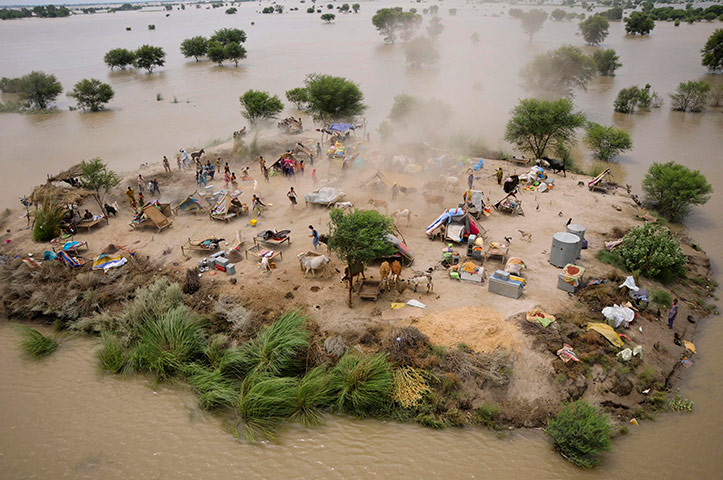
Senate Standing Committee on Climate Change on Monday apprised that Pakistan is ranked among top ten countries worst hit by impacts of climate change in shape of severe floods, torrential rains, rise in temperature and cyclones. The Committee highlighted vulnerability of the country due to increased frequency and intensity of natural disasters in the country, which are being caused due to changing and unpredictable weather patterns.
The committee met here under the chair of Senator Dr Saeeda Iqbal who emphasised to work together with civil society organisations to mitigate these impacts and help vulnerable communities, to better adapt to changing weather patterns. While briefing, Director Resource Centre Akhtar Hameed Khan said Pakistan is among the most vulnerable countries facing climate risks and mechanisms need to be devised for greener, more resilient options for growth and sustainable development.
"Pakistan's contribution to global warming is negligible but it is one of the top ten most affected countries", he said. Chairperson Senator Dr Saeeda Iqbal said "We must pursue sustainable economic growth by appropriately addressing the challenges of climate change and integrate climate change policy with other interlaced national policies".
While briefing about the activities of Pakistan Poverty Alleviation Fund (PPAF) Senior Group Head (PPAF) Zafar Pervez Sabri said " We strengthen the institutional capacity of civil society organisations, and support the creation of organisations of the poor, that can work together to alleviate poverty". PPAF ensures that public services for poor communities are available and adhere to identified quality standards, he said.
"We focus on pro-poor gender sensitive adaptation while also promoting mitigation to the extent possible in a cost effective manner to ensure water, food and energy security of the country in the face of challenge posed by climate change", he told committee. Speakers of the committee emphasised that facilitating an effective use of the opportunities, particularly financial, available both nationally and internationally, is critical for fostering the development of appropriate economic incentives to encourage public and private sector investment in adaptation measures and promoting conservation of natural resources.
An editorial in the Dawn on Tuesday said that away from the din of politics and the immediacy of militant strife, a disaster of enormous proportions is silently evolving in the Hindu Kush-Himalayan mountains up north, one that could in time impact the length and breadth of Pakistan.
"The peaks are home to some 15,000 glaciers which, as a result of rising temperatures, are retreating at an alarming rate of almost 40 to 60 metres a decade, leaving behind glacial lakes in their wake," it said.
The daily warned that 52 such lakes, an inherently unstable phenomenon that can trigger devastating flash floods, have been classified as dangerous to human settlements.
Parts of Gilgit-Baltistan and Chitral have already suffered floods on this count in 2010.
"The melting of the glaciers will also ultimately lead to a rise in sea levels, threatening coastal areas and cities such as Karachi," it said, while referring to a meeting to review the progress of a four-year project between the government and international organisations to deal with the fallout of climate change in Pakistan.
It stressed that by most estimates, "Pakistan will be one of the countries hardest hit by climate change".
"It is therefore encouraging that the government is taking steps such as setting up meteorological observatories at sites vulnerable to glacial lake outburst floods and the planned establishment of automated weather stations in the area which should lead to improved data collection, an essential requirement for a well-calibrated response."
Tuesday 9 April 2013
http://www.brecorder.com/general-news/172/1172969/
http://timesofindia.indiatimes.com/home/environment/global-warming/Pakistan-to-be-hardest-hit-by-climate-change-Dawn/articleshow/19455281.cms

0 comments:
Post a Comment